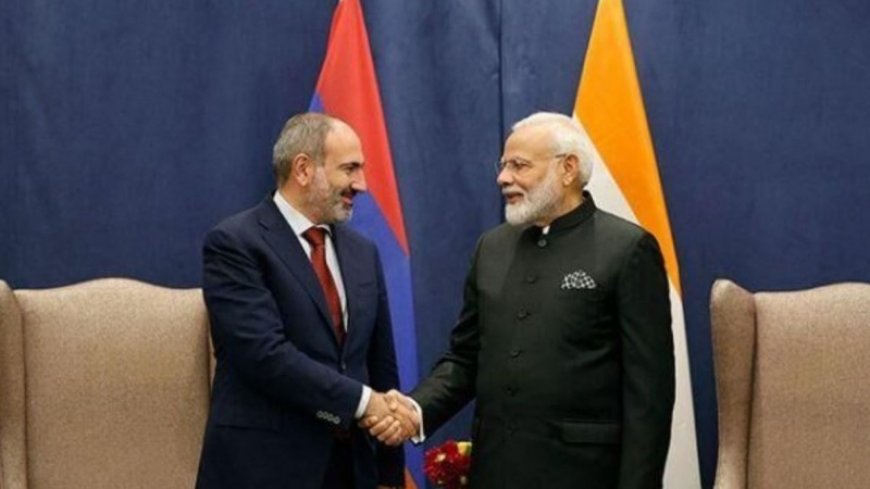India is creating an air corridor for strategically important exports to Armenia
India is creating an air corridor for strategically important exports to Armenia

"India is creating an air corridor to Armenia to serve exports of strategic importance.
HAL and CONCORD have formed the HALCON Joint Working Group for the same purpose. It will strengthen the logistics between India and Armenia," the report states.
The formation of new alliances in the South Caucasus is the evidence of new developments that started as a result of Armenia's policy of diversifying partners.
This region has been in a geopolitical crisis for several decades. And even the ceasefire document signed between Baku and Yerevan did not put an end to competition and the formation of new alliances in the region. If at one time the alliance was formed in the format of Russia-Armenia-France on the one hand, and Azerbaijan-Turkey-Israel on the other, and Iran had a balancing role, then after the Karabakh war, new alliances began to form.
Although it seems that Yerevan and Moscow have drifted apart as a result of Russia's actions in the Karabakh war, the two countries have continued relations in the economic, political-security and strategic spheres. Moscow knows how to balance those deep-rooted relations. However, Yerevan is not satisfied with the current situation in terms of preserving its national interests and through the policy of diversifying relations, Armenia is trying to secure its economic and security interests.
Armenia is the first foreign buyer of the Indian air defense system "Akash". According to Indian experts, Armenia, as the largest importer of Indian weapons, is gradually becoming a strategic partner of that country in the South Caucasus. In addition, Armenia is trying to restore relations with the European Union, European countries, especially France.
On the other side of the coalitions is Azerbaijan, which in recent years has signed large military contracts with Russia, Israel, Pakistan and Turkey. In addition, 140 Israeli companies have started operating in Azerbaijan in recent years. It should be noted that Azerbaijan supplies 40 percent of Israel's oil. On the other hand, the amount of arms sent from Israel to Azerbaijan reached 6 billion dollars by 2016. In the last decade, the Azerbaijani army was also equipped with Israeli anti-aircraft missiles.
And Iran is a balanced actor in the region, which has bilateral and multilateral relations with the countries of the region and actors of the South Caucasus.
After the end of the Karabakh war, agreements were reached regarding corridors and transportation, especially the transit road connecting Azerbaijan to Nakhichevan. On the other hand, stable relations have been established with Armenia in the economic and transit spheres.
However, due to the change in the situation in the region and in the shadow of the policy of diversification of relations adopted by Armenia, it seems that Yerevan has adopted a new agenda regarding relations with Iran. The visits of RA Defense Minister Suren Papikyan and Deputy Foreign Minister Vahan Kostanyan to Iran testify to this.
And finally, it should be noted that after the end of the third Karabakh war, the developments and relative stability in the Caucasus indicate that new developments are taking place on the northern border of Iran and new alliances and cooperation will be formed in the near future.













































